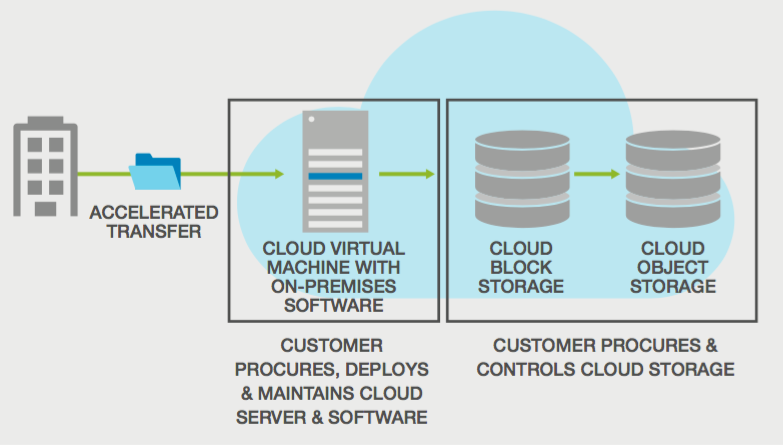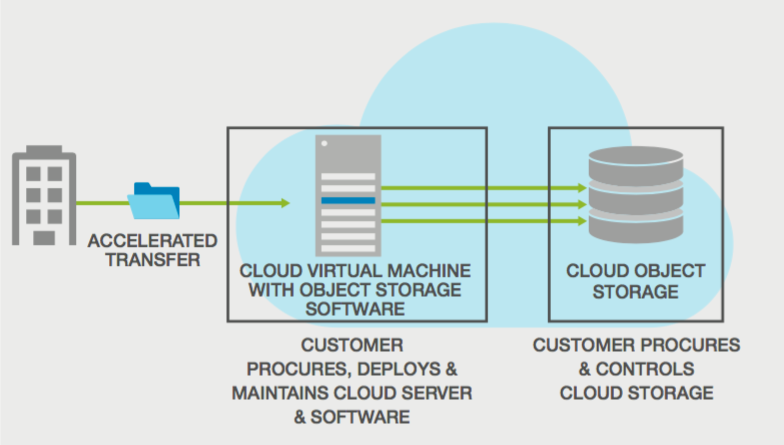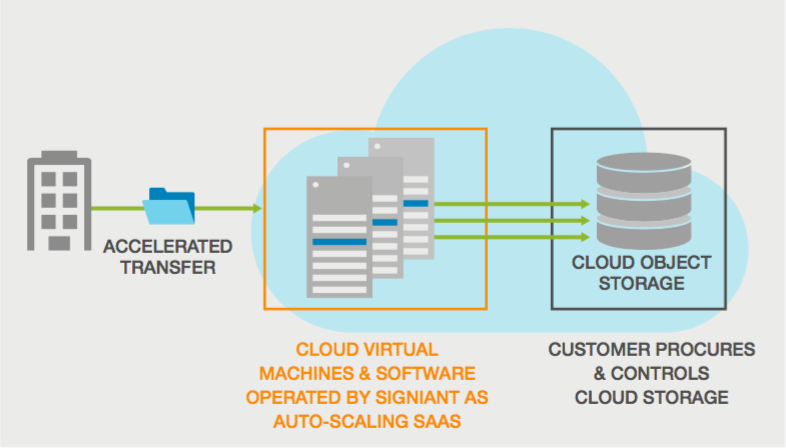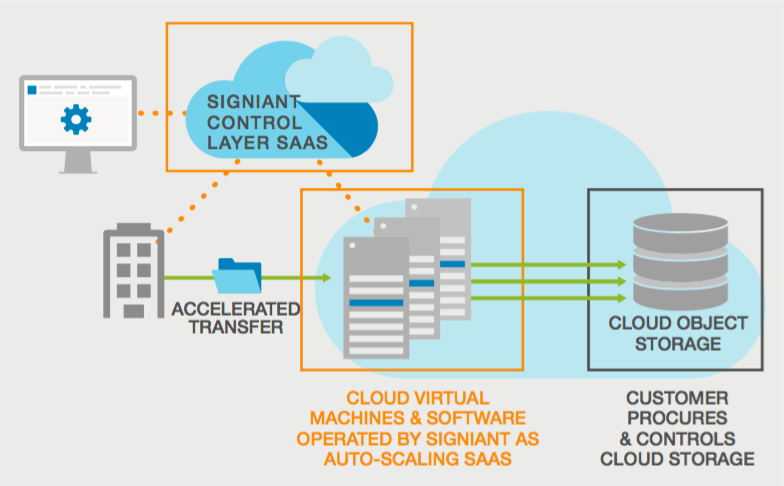Four Stages of Development: Improving Upload Speeds to the Cloud
Signiant Flight evolved in parallel with the maturing of cloud technology. With the same acceleration, reliability and security technology as all Signiant products, Flight is packaged as an enterprise-class, turnkey SaaS utility for moving large data sets into and out of cloud object storage. But it took four fundamental innovations to bring Flight to the level it is today.
A HISTORY OF MOVING BIG DATA TO THE CLOUD
Stage 1: On-Premises Software in the Cloud
As enterprises were getting comfortable with the use of cloud technology to deliver SaaS applications such as Media Shuttle, they were also starting to explore the transfer of large data sets into the cloud for processing and/or storage. Many of these organizations used Signiant technology to transfer large files between data centers, and saw UDP acceleration technology as the best way to deal with the IP network bottlenecks they encountered in moving content to the cloud.
Their early exploration involved the brute force approach shown below. Upload speeds to the cloud could be improved by running acceleration software on a cloud virtual machine (VM). Because this software was designed for use with file/block storage, it was necessary to first land the data in cloud file/block storage — and then pass it on if desired to cloud object storage.
Some upload speed improvement can be realized from this approach, but there are several challenges. It’s complicated and expensive to deploy and maintain, and the single VM makes it less than robust — individual virtual machines in the cloud are not designed for high availability.
Stage 2: Object Storage Interface
An obvious first step in reducing cost and complexity is to integrate the file transfer server software directly with the cloud object storage interfaces of major cloud platforms. Signiant and other providers of acceleration technology undertook this integration, thereby achieving the more straightforward workflow shown below.
This is where Signiant’s competitors stopped, but several challenges remain. The single VM is still a weak point, and considerable investment is required to deploy and maintain the servers and software in the public cloud platform of interest. If the customer wants to change or add cloud platforms, the same cost and effort must be duplicated on the new platform.
Stage 3: Signiant Operates a Cloud-Native SaaS
Based on experience building the cloud-native SaaS platform for Media Shuttle, Signiant saw the opportunity to build a much more reliable, scalable, and cost-effective utility that would really leverage the power of the cloud.
This involved building an auto-scaling, load- balanced, multi-tenant capability in both AWS and Microsoft Azure to automatically deploy the server-side software on as many cloud VMs as necessary to handle the incoming data load. This patented capability forms the core of Flight’s differentiated value, and is operated on a 24/7/365 basis by Signiant’s dedicated DevOps team.
Stage 4: Two Signiant SaaS Components
Signiant also had another important card to play in building out a powerful utility for cloud upload. The SaaS that was built for Media Shuttle to orchestrate the transfers, serve web interfaces, and collect data could also bring similar value to the Flight offering.
The result is a utility with two Signiant SaaS elements that relieve the customer of most of the software deployment and maintenance burden, and make it simple to add or switch cloud platforms (with no switching costs). Flight is totally unique in the market in offering this functionality for AWS S3 and Microsoft Azure Blob storage.






